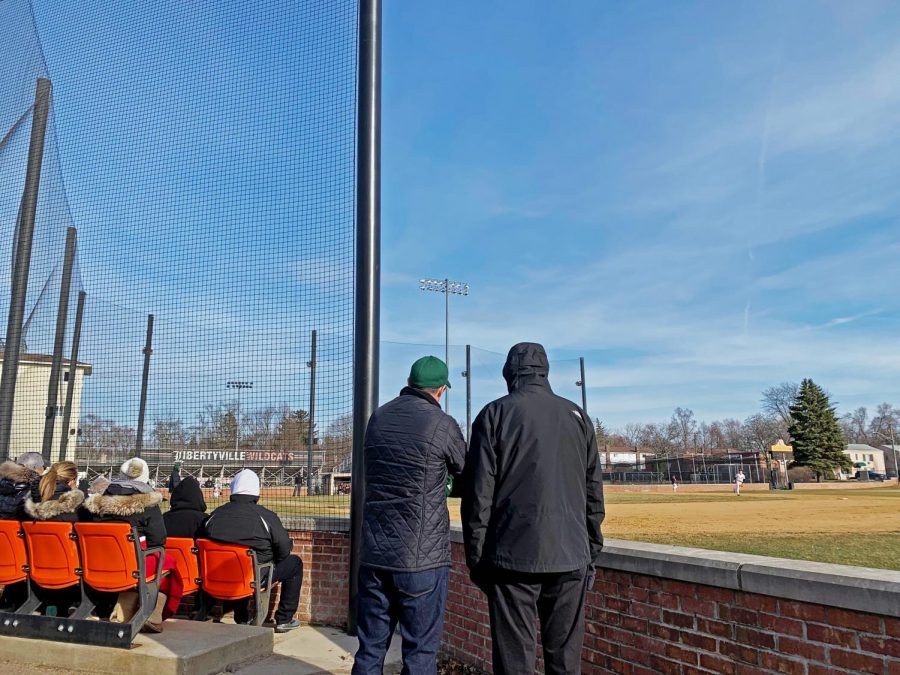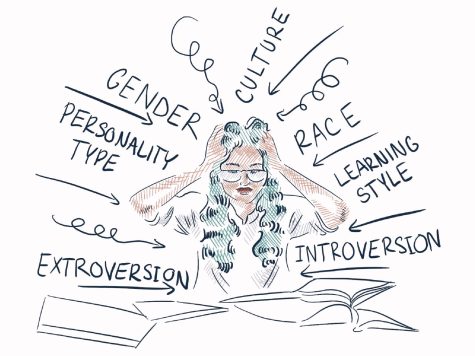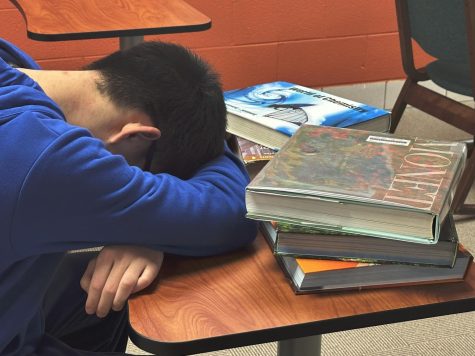Are sports too big of a deal? It’s complicated
Out of the 19 most-viewed television broadcasts in U.S. history, the top 18 have been Super Bowls, according to Nielsen Holdings, an information and data company. Athletes are some of the highest-paid individuals in the world; according to Forbes, boxer Floyd Mayweather once made $275 million for one night of fighting. Out of the seven issues Drops of Ink will publish this school year, one of them is entirely dedicated to sports. It’s hardly a debate. Sports are deeply embedded in American culture. They are a “big deal.”
This isn’t necessarily a bad thing; playing such a big role in culture has its benefits. Sometimes it’s fun to watch grown men punch each other on an ice rink. It’s fun to get together with some buddies and draft your fantasy football teams or set up your March Madness brackets. It’s fun to pledge loyalty to a team — wear their jersey around, go to their games, celebrate their victories and mourn their defeats. Sports culture is fun!
But is it over-glorified? First, let’s talk about it on a national level.
The sports world is problematic, no doubt. It’s a multi-billion dollar industry that comes with overpaid athletes, steroid problems, a gender wage gap, cheating and plenty of corruption. What should be friendly competition can occasionally turn into unhealthy encouragement and toxic rivalry, causing riots after a lost game or a stunning upset.
Despite all this, the general consensus is no, they aren’t too popular in America. The camaraderie athletics establish and the memories they can create far outweigh the cons. As long as fans are respectful and after-game rallies don’t get out of hand, the predominance of sports should not change.
But what about on a youth level? Walk into any class in the school and ask how many students played recreational soccer as a kid. If the class is similar to Drops of Ink, more than half of the kids will say they have. Even at a young age, there’s a big emphasis to play a sport.
Think about athletics at LHS. Are they too dominant in our school setting? Do they put too much pressure on the athletes?
This isn’t to say there is anything wrong with playing sports; they build character, form relationships, gets kids outside and active, and teach them about the importance of exercise. It’s only when they do more harm than good to an athlete’s well-being that sports can become detrimental.
This can be physically, like pushing through the stomach flu to play at state, or mentally, like causing athletes to have anxiety attacks on the field from the stress of trying to win a game. The popularity of sports in high school is all fun and games (literally) until it comes at a cost. Everyday practices and weekend games are demanding, leaving hardly any time for a break in an athlete’s schedule or room for other activities; athletes play in fear of injury, scared that they will let people down or ruin the chance to play the sport they have devoted their lives to.
Parents and coaches can play a significant role in creating or adding to the pressure by taking the game too far. If student-athletes have a bad game, coaches or parents might express disappointment with their performance — as if the student doesn’t feel bad enough. They might add stress to a child’s performance by pushing the idea of playing a sport in college for scholarships.
Some parents even use their child’s sport as an outlet for their frustration or as an avenue to live through them. Their frustration might set a bad example for their kids if they yell at referees or argue with coaches.
In spite of some of these extreme cases, not all parents are to blame. A lot of parents are positively supportive of their kid’s athletic career, and sports can be a great bonding opportunity between the child and parent. And slowly as a society, we’ve become better at not putting as much value on a kid’s athletic ability and focusing more on their effort instead.
So, are sports too big of a deal? It’s a gray area, and there’s no clear answer. But despite the ambiguity, it’s important to take a step back and review our societal emphasis on them. In our opinion, considering all the draws and drawbacks, sports haven’t become “too popular” in America, but maybe go a little easier on the kids.















